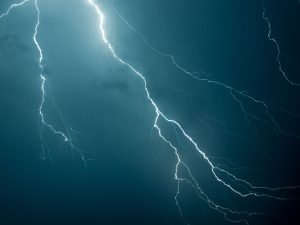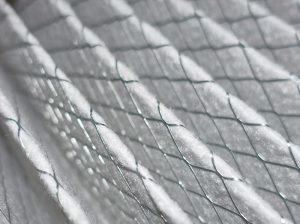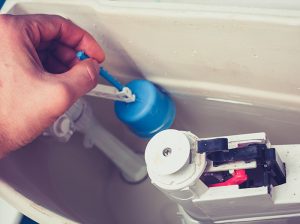Water leaks can be a homeowner’s worst nightmare. If left unchecked, they can lead to higher utility bills and cause significant damage to your property. Detecting a water leak early is crucial to avoiding expensive repairs and ensuring the integrity of your home. In today’s post, we’ll walk you through identifying potential leaks, investigating their source, and determining when it’s time to call a professional plumber.
Understanding the problem
A water leak is more than just a minor inconvenience—it’s a serious issue that can lead to structural damage, mold growth, and increased water bills. Knowing how to spot the signs of a leak early on can save you from these headaches. Here are three common indicators that you might have a water leak in your home:
Increased water bills
An unexplained spike in your water bill is one of the most telling signs of a water leak. It could be a red flag if you’ve noticed that your monthly bill has suddenly increased without any apparent reason—such as increased usage or changes in your household activities.
A leak means water continuously escapes your plumbing system, even if it’s just a small drip. Over time, this constant flow adds up, leading to higher water consumption and, consequently, a higher bill.
Unexplained puddles
Finding water puddles in unexpected places, such as on your floors, near walls, or even where water enters your home, can indicate a hidden leak. These puddles can sometimes be mistaken for spills or other issues, but they warrant closer inspection.
Leaks in pipes, especially those within walls or under floors, can cause water to seep through and create damp spots or puddles. Over time, this moisture can lead to more severe water damage, including mold growth and structural issues.
Low water pressure
A sudden drop in water pressure can also signal a leak. If you notice that your faucets or showers aren’t delivering the usual strong stream of water, there might be a problem with your plumbing system.
Leaks can reduce the amount of water that reaches your fixtures, leading to lower pressure. This can occur if water is escaping before it reaches your faucets or if there’s a significant issue within the plumbing system.
Investigating a water leak
- Check your water meter
Start by turning off all water sources in your home, including faucets, appliances, and irrigation systems. Then, record the current reading on your water meter. After a few hours without using water, recheck the meter. If the reading has changed, it suggests a leak. - Compare water bills
Compare your recent water bill with the one from the previous month. You might even need to go back a few months. Look for any unusual increases that don’t align with changes in your household water use. - Look for water damage
Examine walls, ceilings, and floors for signs of damage. Discoloration, bubbling paint, or warped surfaces can indicate that water is escaping from hidden sources. - Inspect common areas
Check areas where plumbing is present, such as under sinks, behind appliances, and around toilets. Look for signs of moisture, such as water stains, mold, or peeling paint. - Check fixtures
Test the water pressure at various faucets and showers throughout your home. If the issue is widespread, it might indicate a leak somewhere. - Inspect visible pipes
Look at the pipes. Are there any signs of leaks, such as dripping or corrosion, that could contribute to pressure issues?
Why you should call a plumber if you’re worried about a water leak
While some leaks can be identified and managed with basic DIY methods, there are several reasons why it’s better to call a professional plumber:
- Expert diagnosis
Plumbers have the tools and expertise to conduct a thorough inspection and accurately diagnose the source of the leak. They can also identify hidden leaks that a homeowner might find difficult to detect. - Complex plumbing repairs
Leaks often require specialized repairs that go beyond simple fixes. Whether replacing damaged pipes, sealing connections, or addressing complex issues within your plumbing system, a plumber can handle these tasks efficiently and correctly. - Prevent further damage
Professional plumbers can prevent additional damage by addressing leaks promptly and effectively. Timely intervention can minimize water damage to your home and avoid costly repairs. - Long-term solutions
A plumber can provide long-term solutions to prevent future leaks, offer advice on maintaining your plumbing system, and recommend upgrades or improvements to enhance reliability. - Safety and compliance
Plumbing repairs often involve working with high-pressure water systems or potentially hazardous materials. Plumbers are trained to perform these tasks safely and comply with local building codes and regulations.
If you suspect a water leak, contact Polar Bear Services
Detecting and addressing water leaks early on can save you from costly repairs and potential damage to your home. By monitoring your water bills, looking for unexplained puddles, and watching out for low water pressure, you may be able to catch issues before they escalate. When in doubt, don’t hesitate to call the experienced plumbers at Polar Bear Services!
Our local plumbers offer residential plumbing repair services and commercial plumbing solutions in the Greater Birmingham metro, Huntsville, and Central Alabama. In addition to finding and fixing water leaks, our team is well-versed in the following:
- Fixture repair
- Drain cleaning
- Sewer line repair
- Water heater repair and replacement
- Sump pump repair and replacement
- Frozen pipe repair
- And much more!
We also offer emergency plumbing services for homes and businesses in our area. Contact us today to schedule an appointment; we are here to help!




